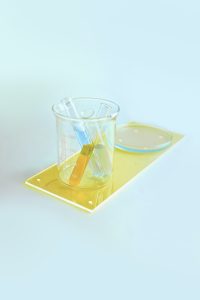7.6 Drug Screening
Drug Screening
In this section, you will explore information about Drug Screening for Employment in Canada:
In Canada, about 10% of Canadian worksites with 100+ employees have drug testing programs. These programs are much more common in the United States, where legislation in the 1980s made drug testing more widespread in all types of companies.
Drug Screening for pre-employment as well as employment is about health and safety in the work environment. It is not used in all work environments.

How Pre-Employment Testing Works
- Pre-employment drug testing and alcohol testing are considered post-offer (after the offer of employment is conditionally accepted).
- Any non-negative test results are re-tested and confirmed to ensure court-worthy reliability.
- Because the Canadian Human Rights Act (CHRA)(1) considers an addiction to be a disability, if an applicant tests positive and is determined to have a substance abuse addiction, your company has a duty under CHRA to offer accommodation. This may then involve utilizing return-to-duty services(2) to ensure that as an employer you are following the due diligence required to maintain a safe workplace.
- If an applicant tests positive and is not found to have a substance abuse addiction, he or she is not protected under CHRA legislation.
What Do They Test For Pre Employment Drug Screening?
The Department of Transportation requires drug and optional alcohol testing post-offer of employment. Many other companies do as well. Jobs that require drug testing include transportation (vehicle, motorized, trains, planes etc), healthcare, and hospital, among others.
The Canadian Centre for Occupational Health and Safety(3) defines a safety-sensitive position as one that, if not performed in a safe manner, can cause direct and significant damage to property and injury to the employee, others in the area, the public and the immediate environment. Safety-sensitive roles are often found in the construction, medical, manufacturing, natural resources, transportation and warehousing industries, among others.
There are many different types of drug tests for a variety of needs. Depending on the type of test, donors would be required to provide a urine or saliva sample.
- Urinalysis can be used to test for cannabis, cocaine, amphetamines and opiates.
- Saliva testing is one of the most commonly used because it can be collected on-site. It can identify recent usage and is 100% observed.
Our Human Rights are important to know at any time, but when it is around drug and alcohol testing it is important to have knowledge around drug and alcohol testing. There are many ongoing questions that are needed to be answered so it is not simple and it is important to know your rights.
Ontario Human Rights Commission – Drug and alcohol testing – Frequently asked questions(4)
Ontario Human Rights Commission – Drug and alcohol testing situations(5)
Explore Canadian Drug Screening further:
ATTRIBUTION: This chapter is not covered by the adaptation statement, it is an original work.
References
- Legislative Services Branch. (2021, August 31). Consolidated federal laws of Canada, Canadian Human Rights Act. https://laws-lois.justice.gc.ca/eng/acts/h-6/page-1.html
- CannAmm. (2023, May 10). Return to Work Services and Support Programs | CannAmm. CannAmm Occupational Testing Services. https://www.cannamm.com/services/return-to-duty-services/
- Workplace Strategies: Risk of Impairment from Cannabis – CCOHS Canadian Centre for Occupational Health and Safety. https://www.ccohs.ca/products/publications/cannabis_whitepaper.pdf
- Drug and alcohol testing – Frequently asked questions | Ontario Human Rights Commission. (n.d.). https://www.ohrc.on.ca/en/drug-and-alcohol-testing-%E2%80%93-frequently-asked-questions
- Policy on drug and alcohol testing 2016 | Ontario Human Rights Commission. (n.d.). https://www.ohrc.on.ca/en/policy-drug-and-alcohol-testing-2016

